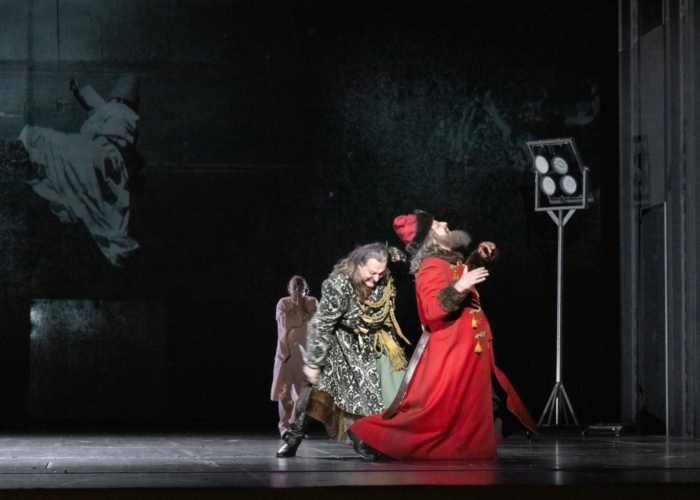
Review
|
27.06.2024
“George Gagnidze is outstanding as Shaklovity” in Berlin
Reviews are brilliant for the new production of Khovanshchina and George Gagnidze’s Shaklovity at the Staatsoper Unter den Linden:
“George Gagnidze is outstanding as Shaklovity… .”
Hugo Shirley, Opera Now
“Perfectly cast: George Gagnidze (Schaklowity)
“Absolutely perfectly cast was the boyar Shaklovity with the wonderful George Gagnidze, who provided the entire palette of sounds from melancholy to malice in the most varied nuances.”
Ursula Ehrensberger, Das Opernglas
“George Gagnidze was also fantastic as Shaklovity, with an incisive timbre and really sibylline accents in his work with the text.”
Alejandro Martinez, Platea Magazine
… a vocally and scenically imposing Shaklovity.”
Luis Gago, El País
“The singing is uniformly superb. The two warring basses (Mika Kares as Prince Iwan Chowansky and Taras Shtonda as high priest Dossifei) and their baritone rival Bojar Schaklowity (George Gagnidze) are all formidable… .“
Shirley Apthorp, Financial Times
“In the colors of villainy, George Gagnidze shows no restraint as Shaklovity.”
Jan Brachmann, Frankfurter Allgemeine Zeitung
“… the audience hanging spellbound on the lips of the consistently fabulous singers for three hours. At the end, it rises to an ovation.”
Eleonore Büning, Neue Zürcher Zeitung
“Of a high level was also George Gagnidze’s Boyar Shakovity by virtue of his robustness, generous vocal presence, and clever accents, with which he impeccably characterized such a sinuous and devious character.”
Raúl Chamorro Mena, Codalario
“George Gagnidze’s Shakovlity shone on each of his appearances, not only his moving account of Russia’s troubled history.”
Mark Berry, Seen and Heard International
“… a moving George Gagnidze… .”
Bojan Budisaljevic, Neue Musikzeitung
“In Mika Kares, Taras Shtonda and George Gagnidze the production boasted three commanding basses, each highly distinctive in tone but all able to convey the full dramatic force of their respective characters.
(…)
As Shaklovity, George Gagnidze had a lighter tone than Mr Shtonda and a more agitated manner than Mr Kares, but was nonetheless responsible for the evening’s most moving scene, a heartfelt monologue at the centre of the third act lamenting the recurring misfortunes and sufferings of a nation and its people.”
Jesse Simon, Mundo Clásico
“Shakovlity’s pean to the old order was passionately put across by George Gagnidze”
Carlos María Solare, Opera Magazine UK
“From Mika Kares as the vocally and dramatically powerful Ivan Khovansky and Najmiddin Mavlyanov as his son Andrei to Taras Shtonda as Dossifei and George Gagnidze as the boyar Shaklovity to the wonderfully mezzo-satisfying and touching Marina Prudenskaya as Marfa, all roles are excellently cast.”
Dr. Joachim Lange, Orpheus Magazine
“…and George Gagnidze’s Shaklovity, whose baritone was just as steady and reliable.”
Elena Luporini, Bachtrack
“Baritone George Gagnidze portrays the role of the Boyar Shaklovity with a self-confident, imposing presence.”
Zenaida des Aubris, Operawire & O-Ton
“… fascinatingly intriguing: George Gagnidze… .“
Berthold Seliger, Neues Deutschland
“… George Gagnidze as Boyar Shaklovity portrays a vivid villain… .”
Heike Franke, Opera Versum
“But Mika Kares as the power-hungry Prince Ivan Khovansky, George Gagnidze as Boyar Shaklovity, Najmiddin Mavlyanov as Andrei Khovansky, Andrei Popov as the Scribe and Evelin Novak as Emma also gave dramatically vivid and vocally outstanding performances.”
Dr. Ingobert Waltenberger, Online Merker
“… the large cast of singers includes a hand-picked ensemble of protagonists. … Taras Shtonda as Dossifei, and George Gagnidze as Boyar Shaklovity also have class.”
Dieter David Scholz, Opernfreund
“Taras Shtonda as Dossifei, George Gagnidze as Boyar Shaklovity, and a number of other smaller roles, all of which are well cast, complete an ensemble that appears extremely cohesive and leaves a very coherent overall impression.”
Peter Sommeregger, Klassik Begeistert
“I hadn’t heard George Gagnidze in a while and was surprised to find him here as Shaklovity. Actually, as I have always heard him in Verdi roles, this is the first time I hear him in a language other than Italian. … nobody will deny the impact of his voice in some very exciting climactic high notes.”
Rml, I hear voices
[Photo: Monika Rittershaus]
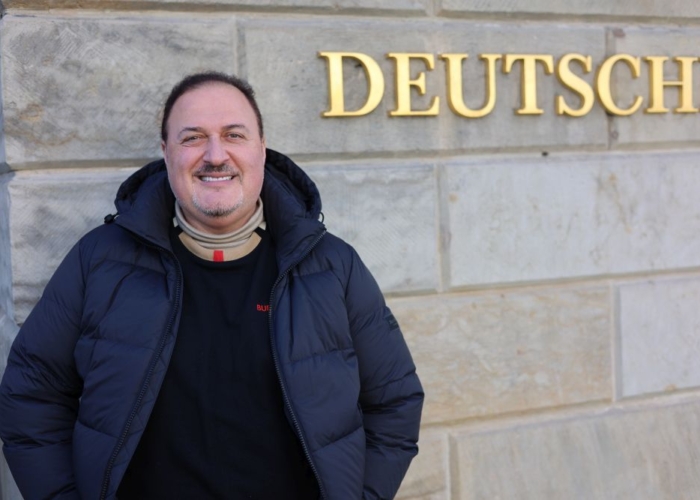
Review
|
01.12.2025
Press review “Khovanshchina” Staatsoper Berlin
Following the rave reviews for Claus Guth’s new production of Khovanshchina, featuring George Gagnidze as Boyar Shaklovity at the Staatsoper Unter den Linden in June 2024, the revival this November also received excellent notices internationally:
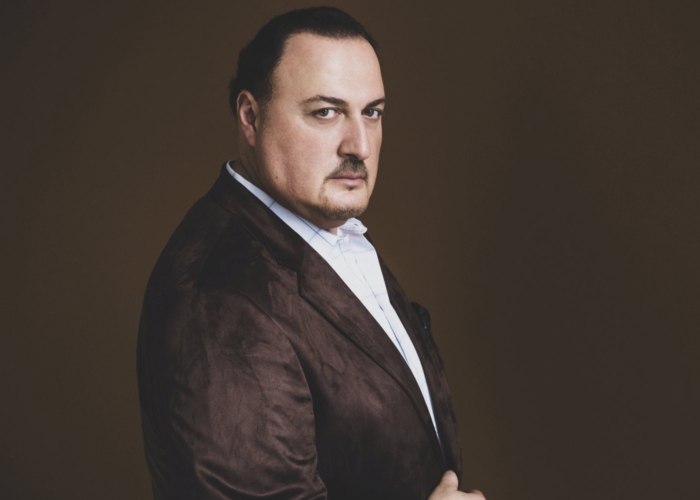
Review
|
08.11.2025
Interview with Italian magazine Amadeus
For their November 2025 issue, Italian magazine Amadeus features an interview with George Gagnidze by Alessandro Cammarano. In the 2025/26 season, George Gagnidze takes on three major roles in Italy: after his acclaimed performances as Gianciotto in Francesca da Rimini at the Teatro Regio Turin, he will also appear in the title role of Macbeth at the Opera Carlo Felice in Genoa.
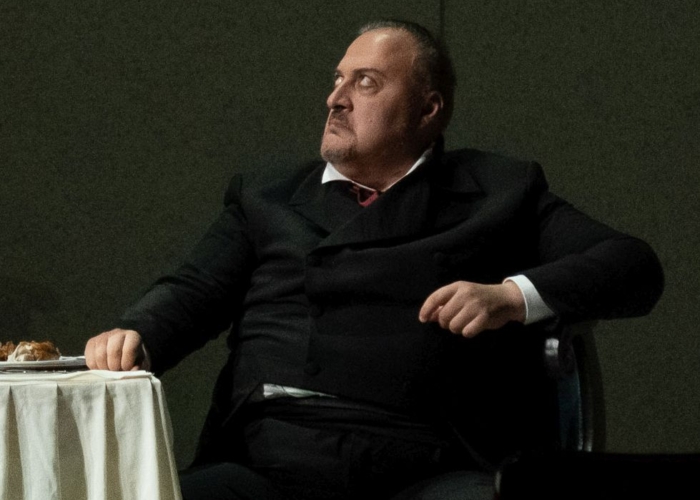
Review
|
16.10.2025
Reviews “Francesca da Rimini” in Turin
“George Gagnidze as her husband Gianciotto was excellent...” Paolo Gallarati, La Stampa
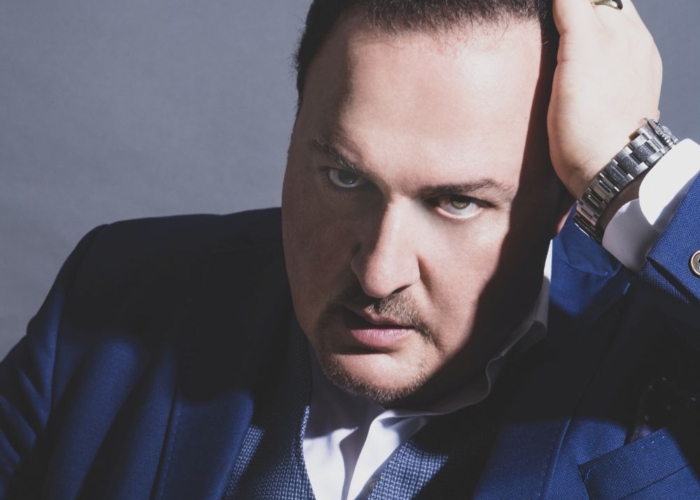
Review
|
10.10.2025
“L’Italia è la culla del mio repertorio”. L’intervista
di Giovanni Zambito - Il baritono George Gagnidze, tra le voci verdiane più autorevoli della scena lirica internazionale, si prepara a una nuova intensa stagione artistica che lo vedrà protagonista in Italia e all’estero. Dopo quasi 150 recite al Metropolitan di New York, Gagnidze tornerà nel Belpaese per tre appuntamenti di grande rilievo: Francesca da Rimini al Teatro Regio di Torino, Macbeth al Carlo Felice di Genova e Nabucco al Macerata Opera Festival. Parallelamente, sarà impegnato in importanti produzioni in Germania e Spagna, tra cui Der fliegende Holländer.
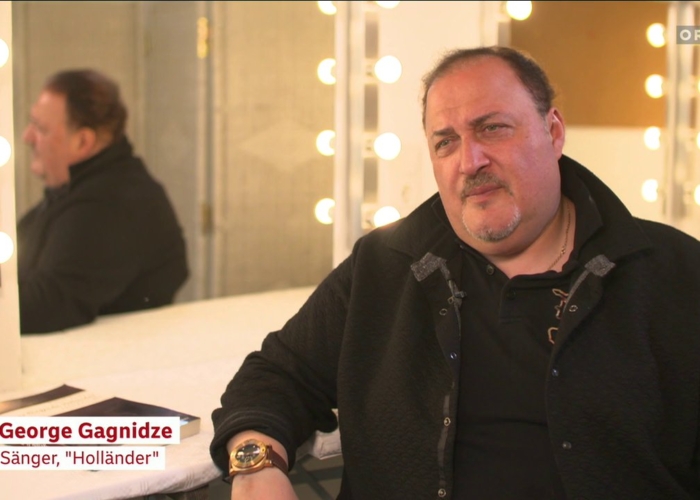
Interview
|
04.07.2025
Interview for ORF TV
In the lead-up to the premiere of Der fliegende Holländer at the Oper im Steinbruch Festival, George Gagnidze spoke with ORF TV about his role and the production in St. Margarethen. The interview, along with rehearsal footage, can be viewed here:




